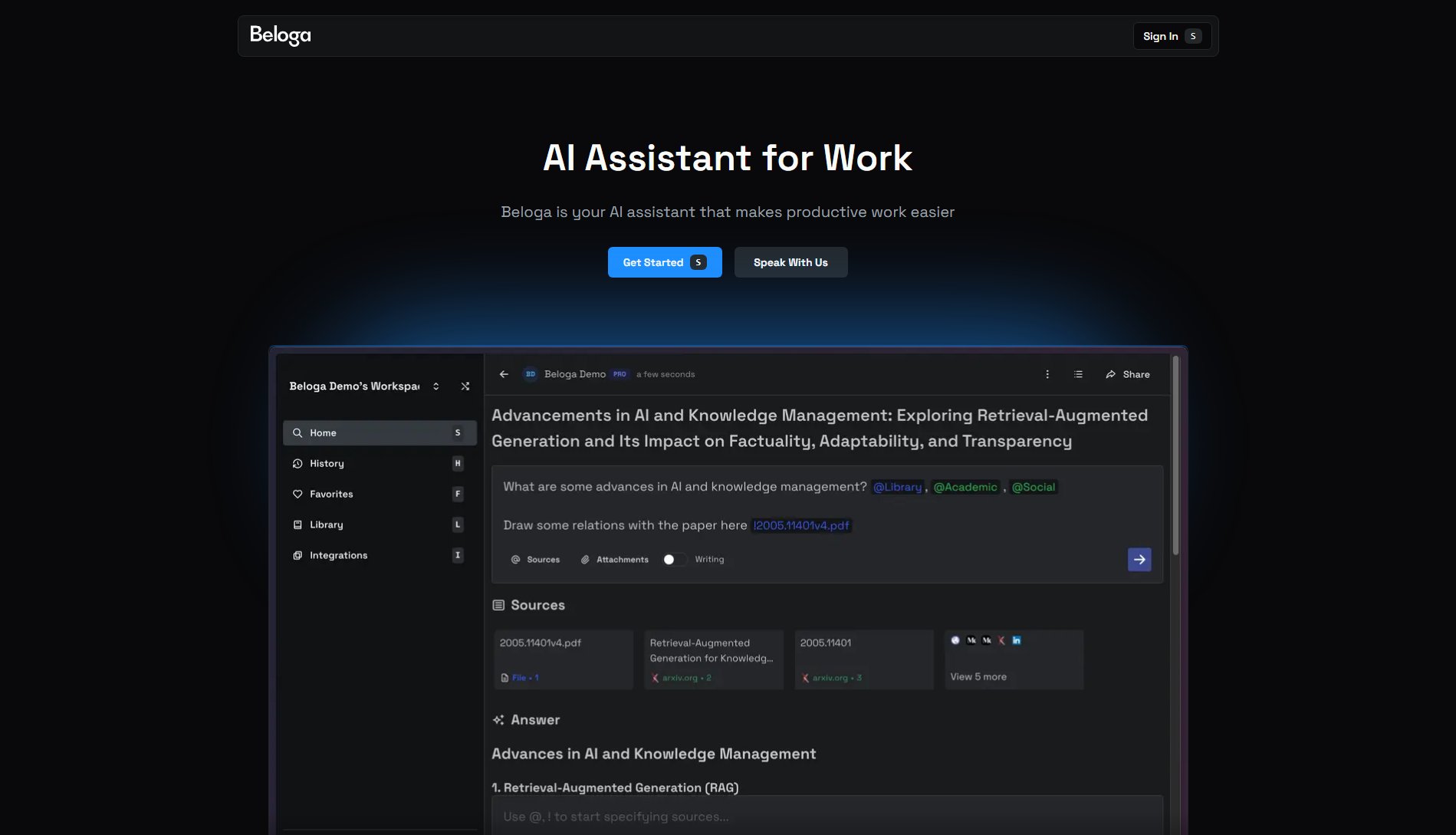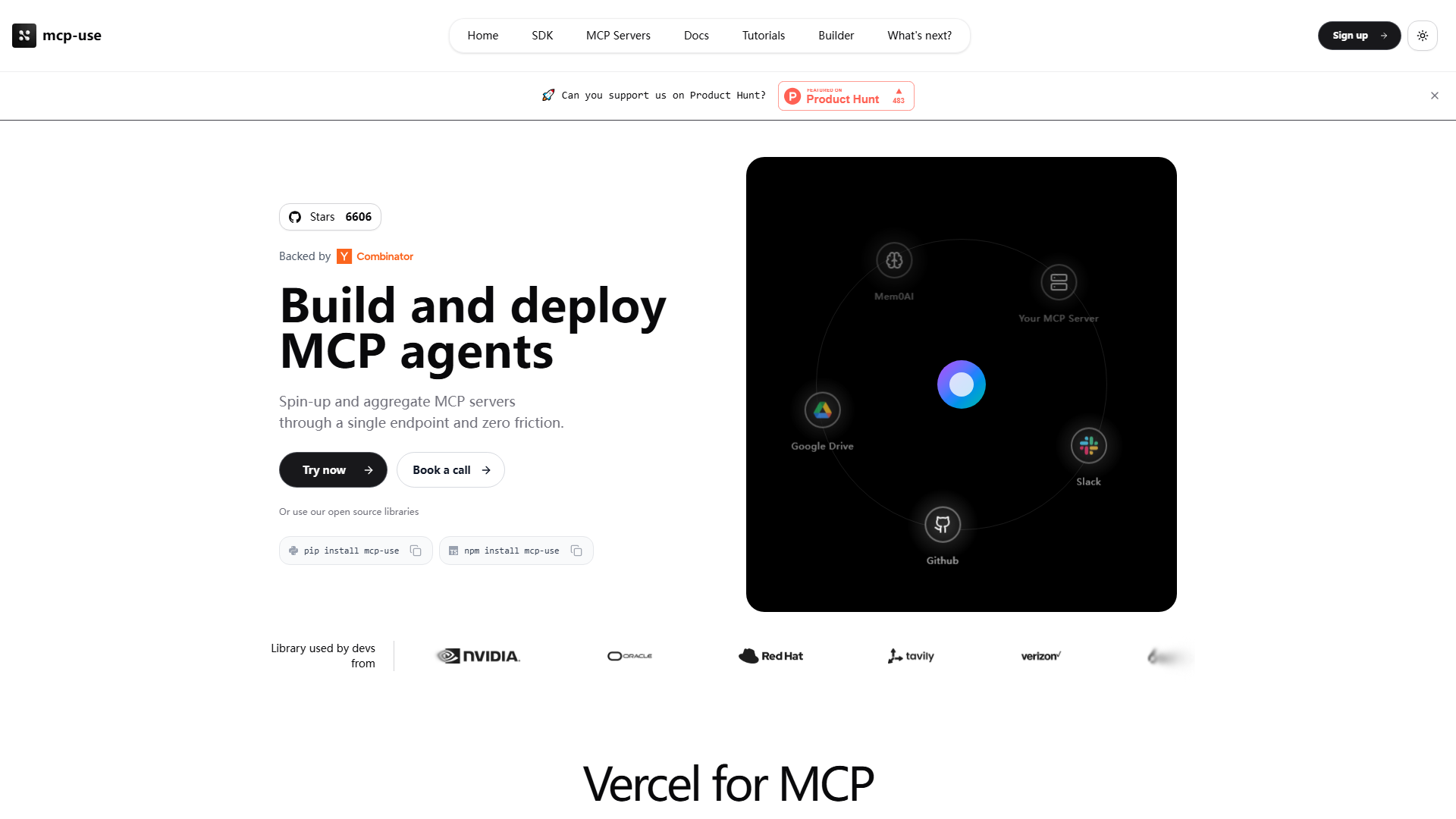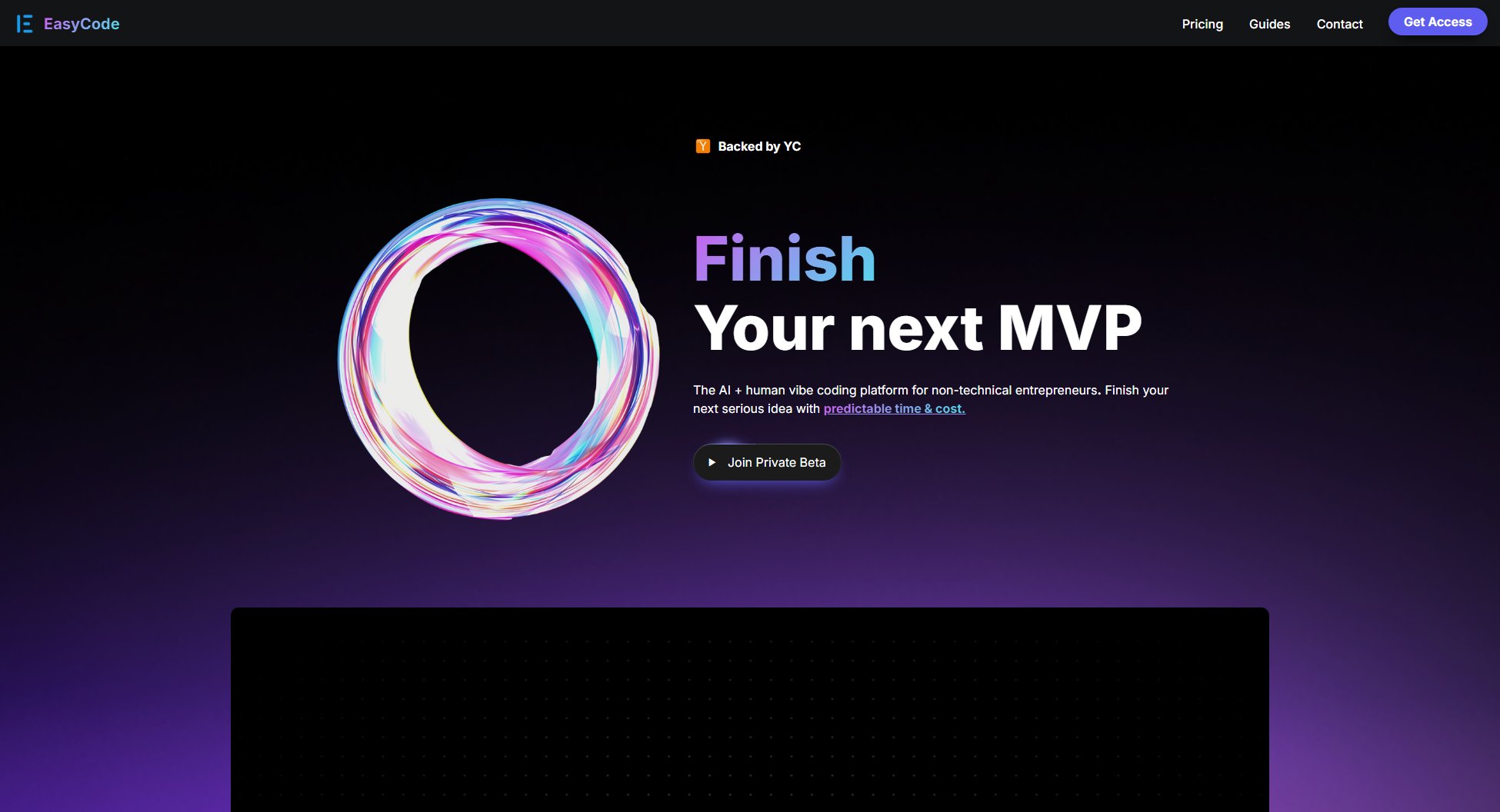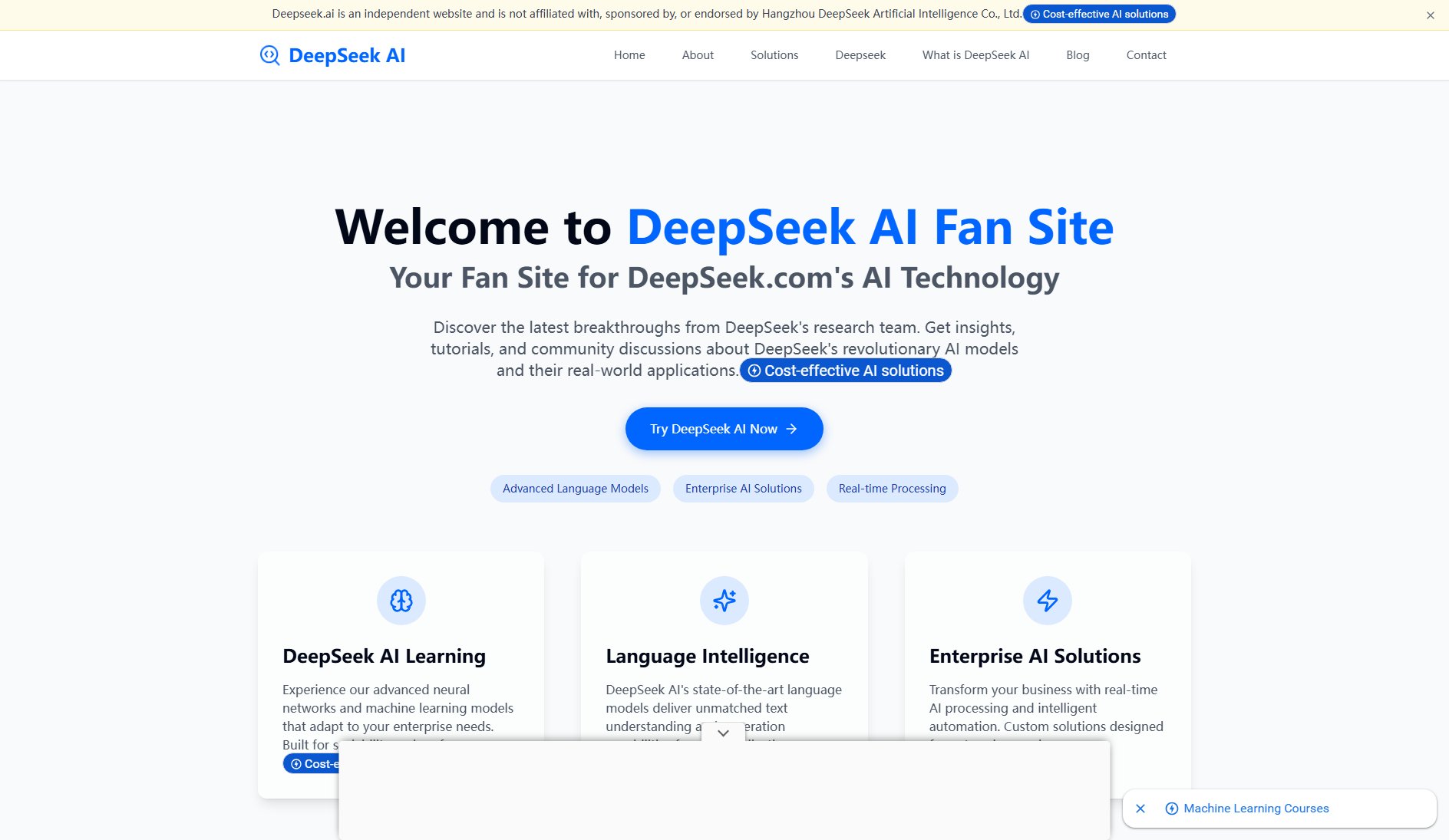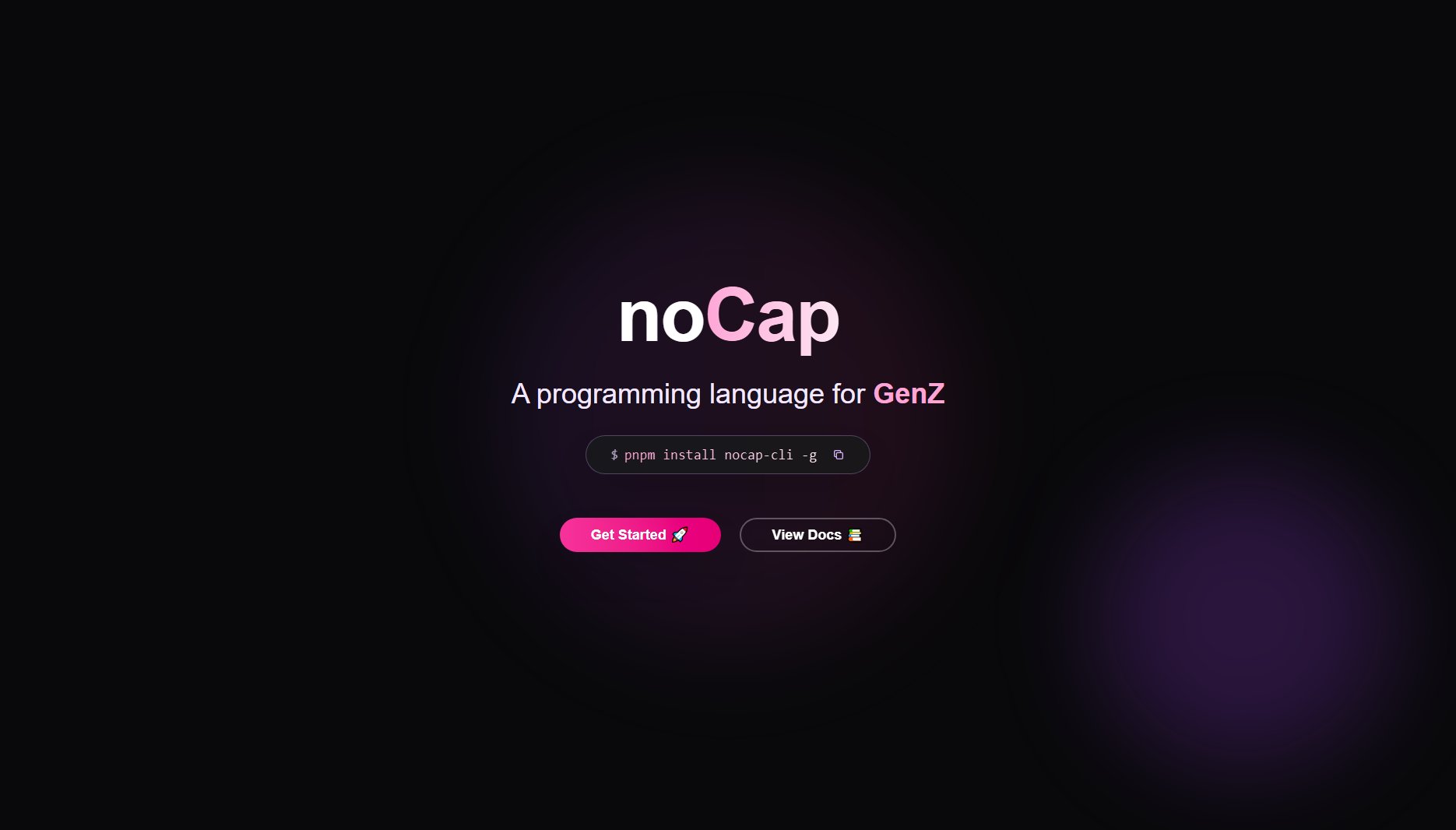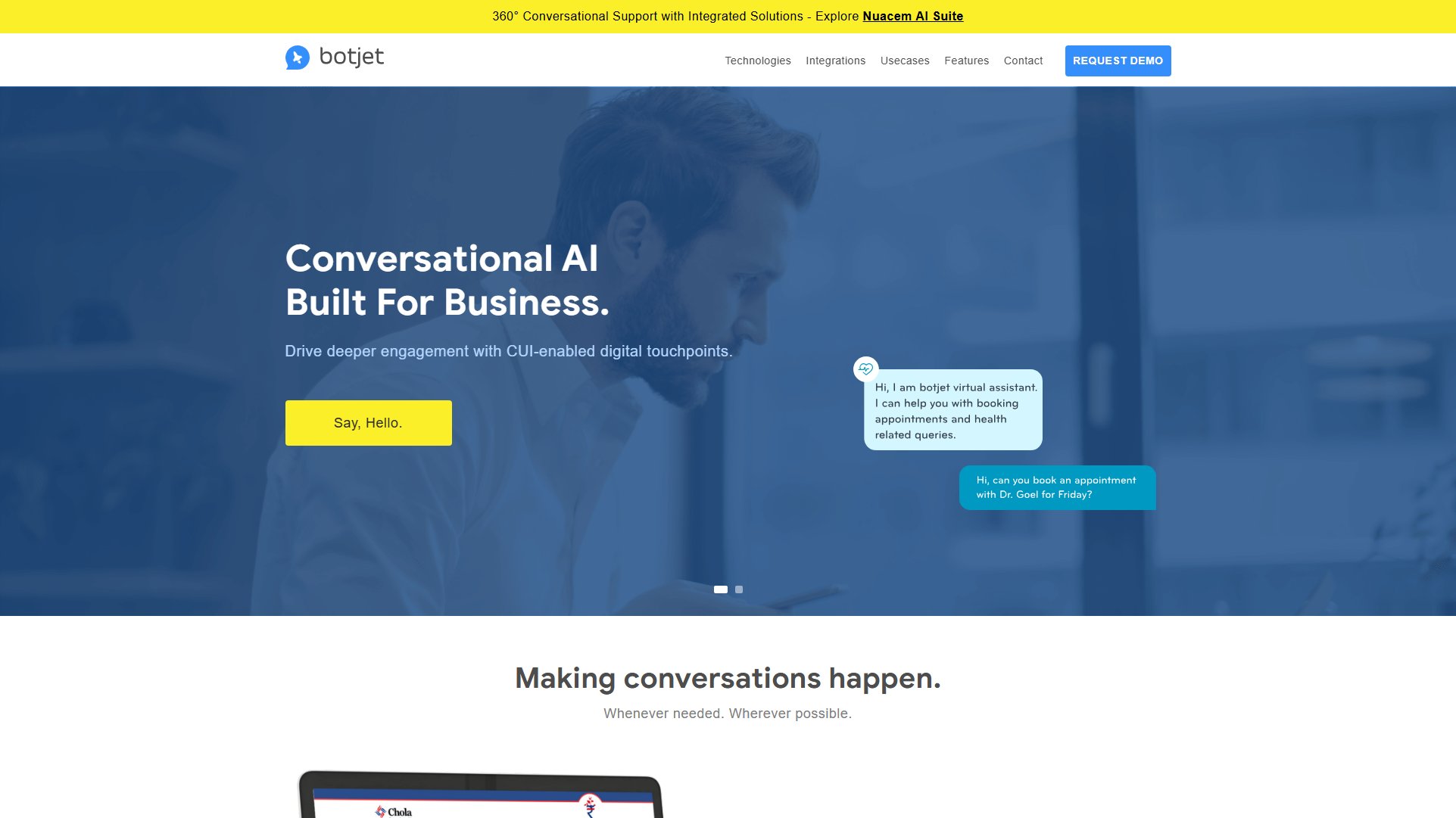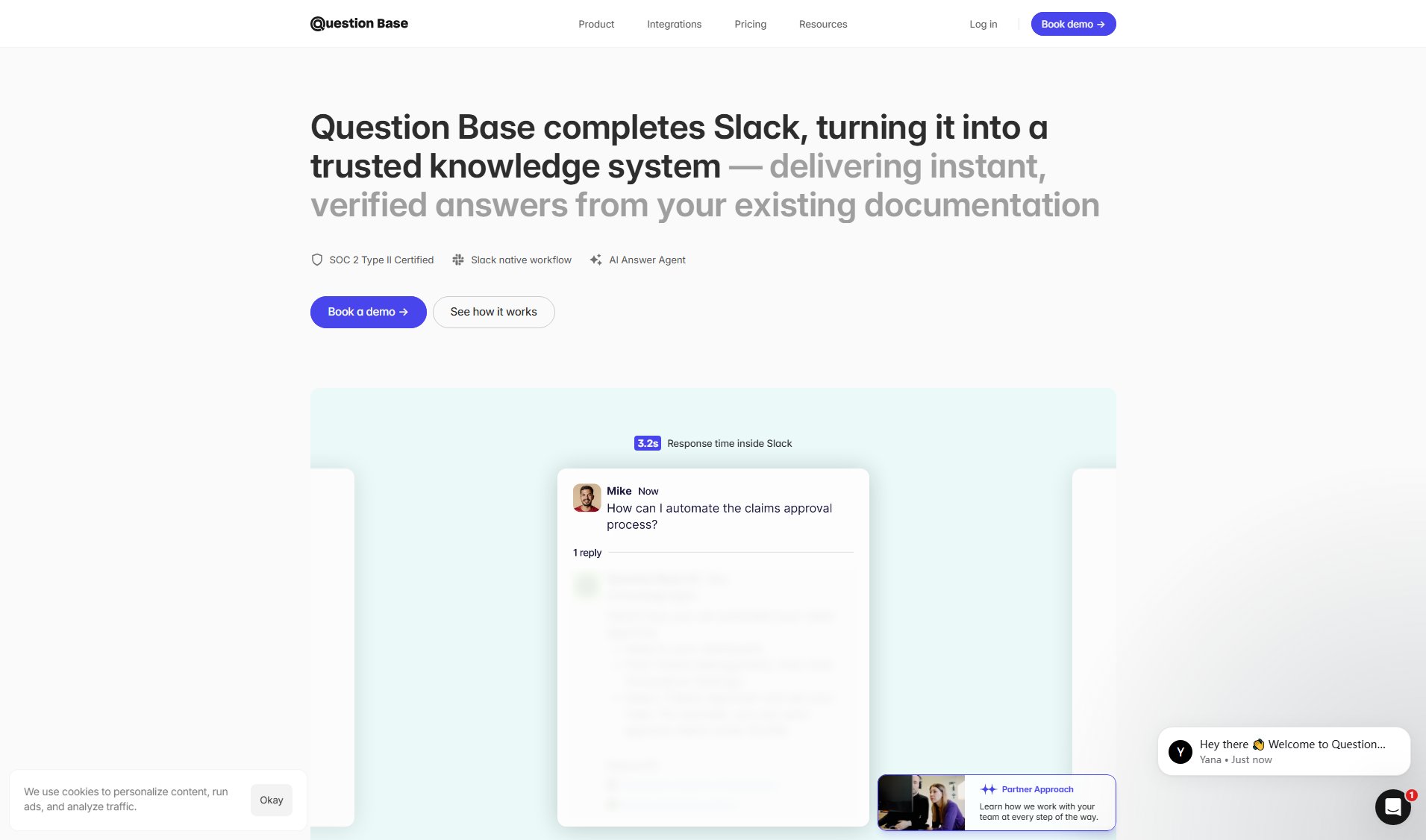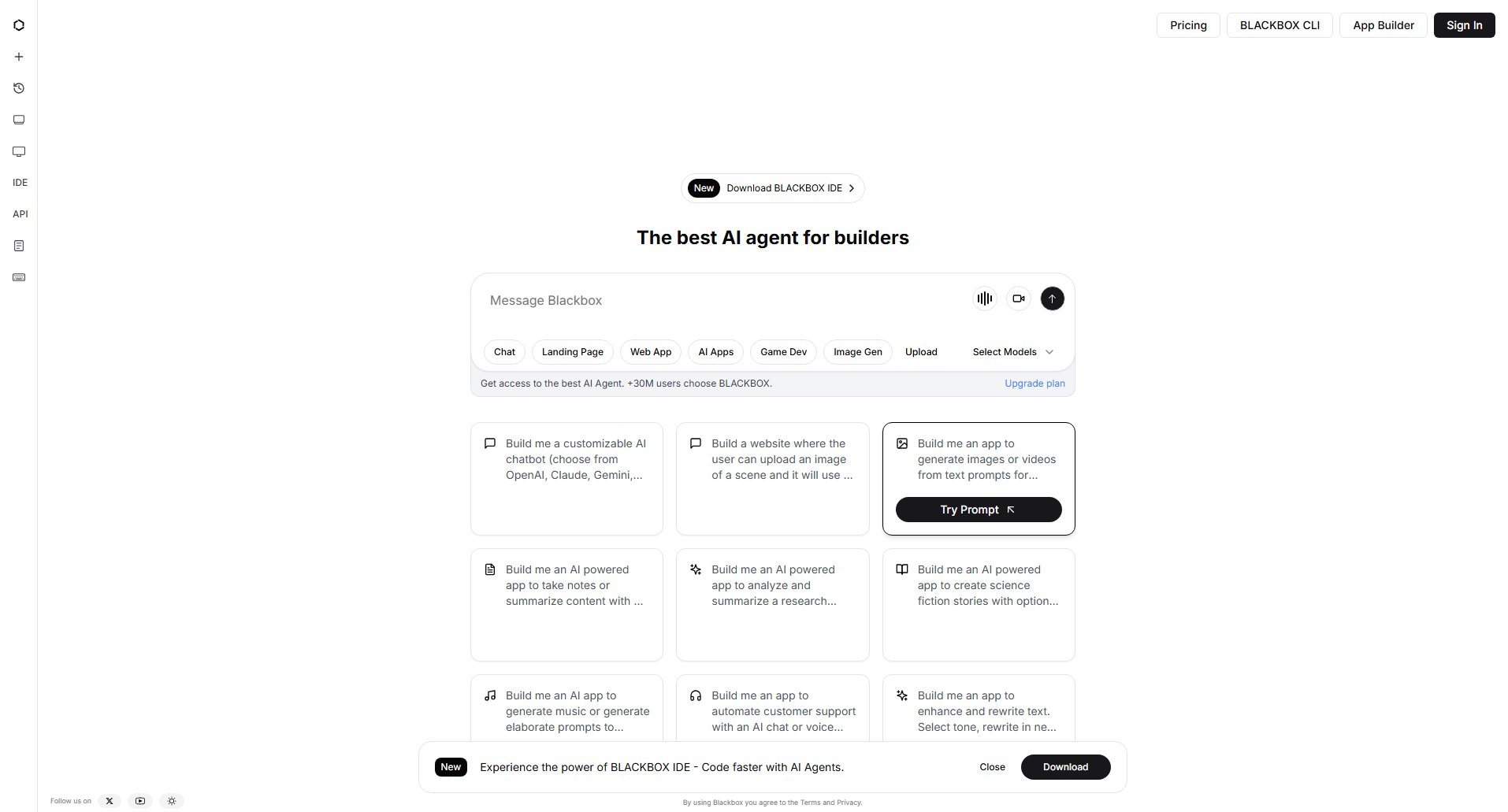Scoold
An Open Source Q&A Platform for Teams
What is Scoold? Complete Overview
Scoold is an open-source Q&A platform designed to facilitate knowledge sharing within teams and organizations. It serves as a Stack Overflow-like solution that can be self-hosted, offering a collaborative environment for asking questions, providing answers, and building a knowledge base. The platform is particularly useful for developer teams, enterprises, and communities looking to centralize their technical documentation and problem-solving discussions. Scoold Pro is the premium version that offers additional features and support, making it suitable for organizations requiring enhanced functionality and reliability.
Scoold Interface & Screenshots
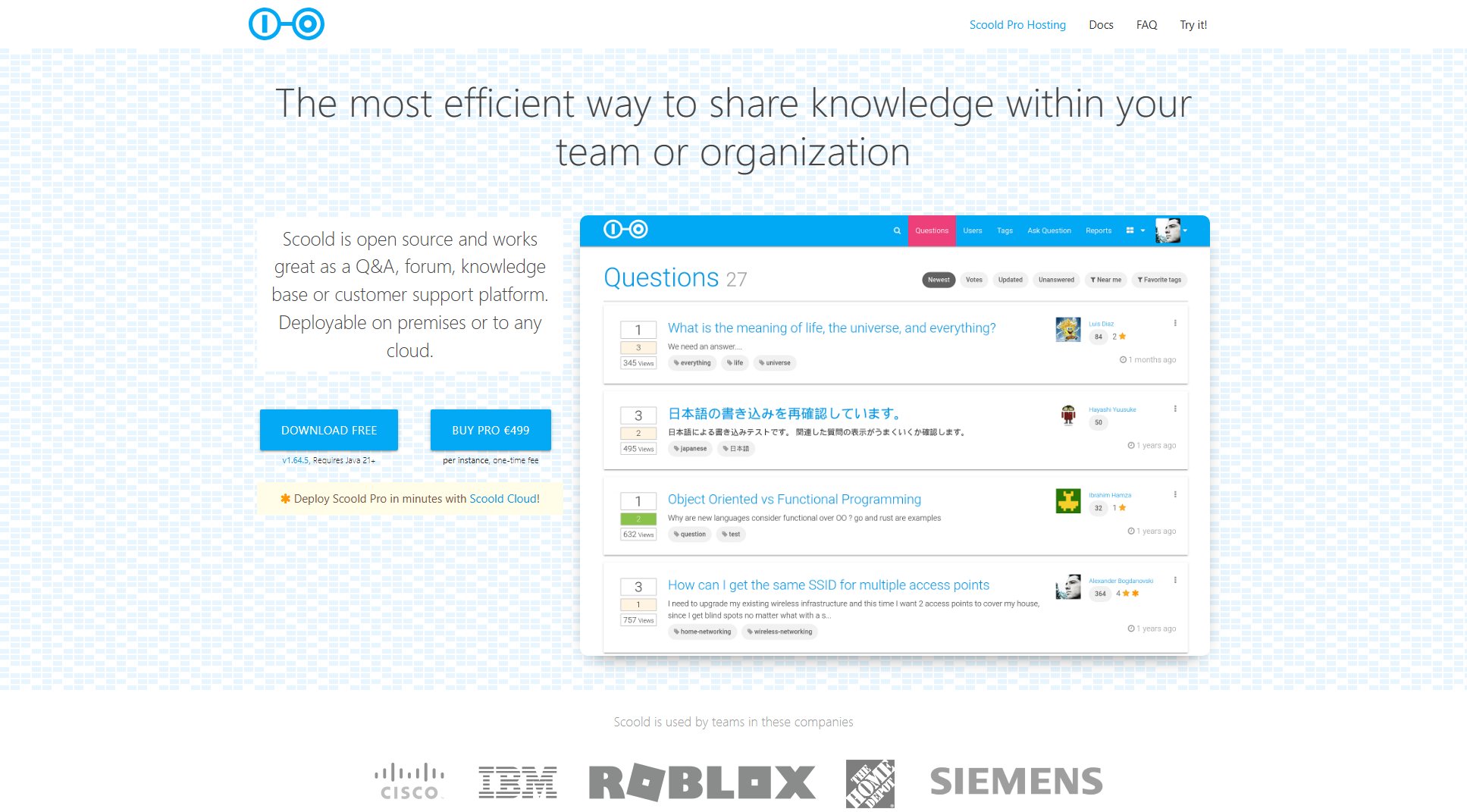
Scoold Official screenshot of the tool interface
What Can Scoold Do? Key Features
Open Source Core
Scoold's open-source foundation allows for complete transparency and customization. Users can modify the source code to fit their specific needs, making it a flexible solution for various organizational requirements.
Self-Hosting Capability
Scoold can be deployed on your own servers, virtual machines, or containers, giving you full control over your data and infrastructure. This is ideal for organizations with strict data privacy and security policies.
Pro Version with Premium Features
Scoold Pro offers advanced features not available in the open-source version, including priority support, additional customization options, and enhanced performance optimizations.
Multiple License Tiers
Scoold Pro comes in three license tiers: Basic (binaries only), Pro with Source (includes source code), and Unlimited (for resellers and large deployments). This tiered approach ensures scalability for different organizational sizes and needs.
Integration with Para
Scoold can be connected to Para, a backend service that can be self-hosted or used as a managed service (ParaIO.com). This integration enhances Scoold's functionality with additional backend capabilities.
Best Scoold Use Cases & Applications
Internal Developer Q&A
Development teams can use Scoold to create an internal Stack Overflow-like platform where team members can ask technical questions, share solutions, and build a searchable knowledge base.
Enterprise Knowledge Management
Large organizations can deploy Scoold Pro across multiple departments to centralize technical documentation, FAQs, and best practices, reducing repetitive questions and improving information accessibility.
Community Support Platform
Open-source projects or tech communities can use Scoold to provide a structured support system where users can ask questions and receive answers from the community or project maintainers.
How to Use Scoold: Step-by-Step Guide
Choose between the open-source version or Scoold Pro. For the open-source version, download the code from GitHub. For Scoold Pro, purchase a license from the official website.
Deploy Scoold on your preferred hosting environment. This could be a local server, cloud provider, or containerized environment like Kubernetes.
Configure Scoold by setting up the necessary environment variables and connecting it to a Para backend (either self-hosted or ParaIO.com).
Invite team members or community participants to start asking and answering questions. Customize the platform's look and feel to match your organization's branding.
Monitor activity, manage content, and utilize the platform's moderation tools to maintain a high-quality knowledge base.
Scoold Pros and Cons: Honest Review
Pros
Considerations
Is Scoold Worth It? FAQ & Reviews
Scoold is the open-source version available to everyone without restrictions. Scoold Pro is the premium, closed-source version that includes additional features and support options.
A license allows you to deploy one instance of Scoold Pro on one host machine (VM, container, etc.) and receive updates for 1 year. Different tiers offer varying levels of access to source code and deployment permissions.
Yes, Scoold Pro can be self-hosted on your own servers or connected to ParaIO.com, the managed Para service.
Support is available via email or on Gitter. Bugs can be reported on the GitHub page.
No, all sales are final.

